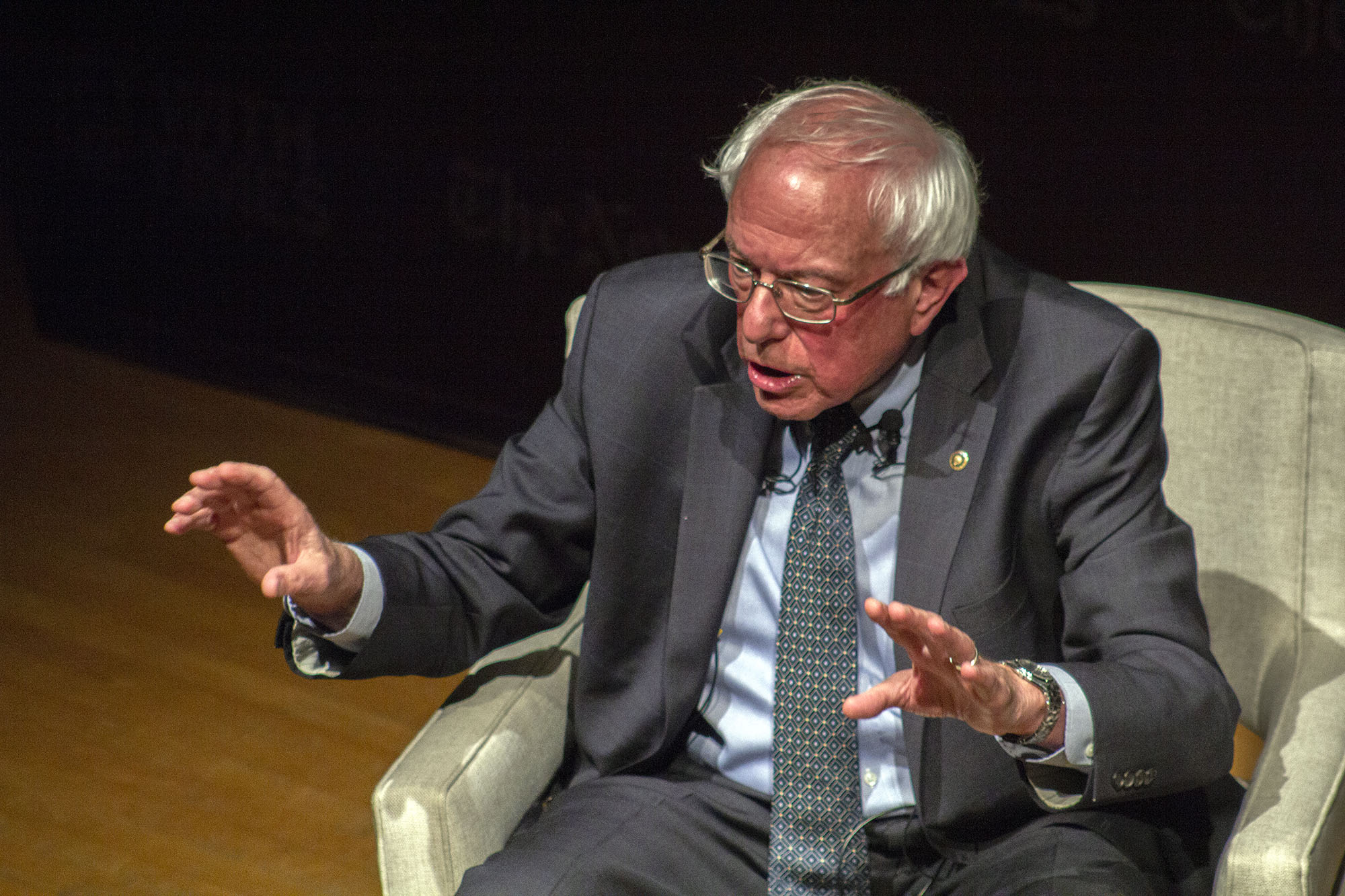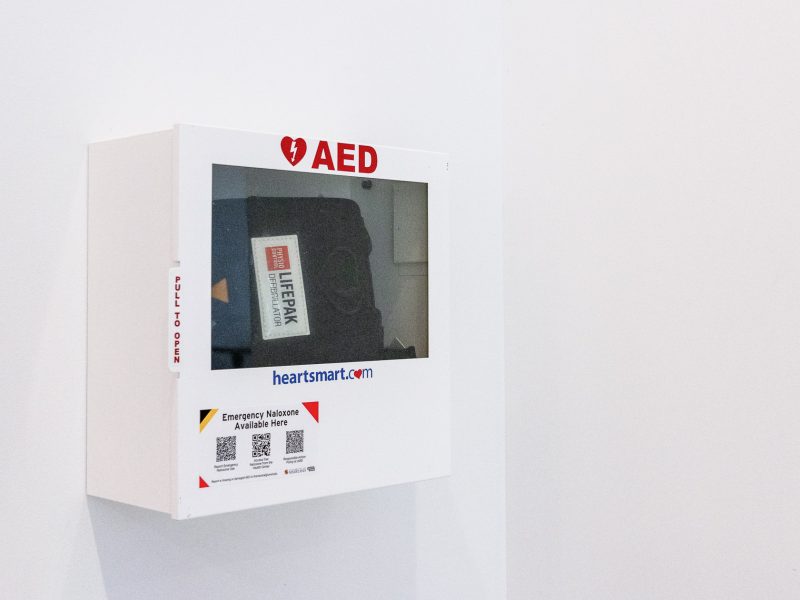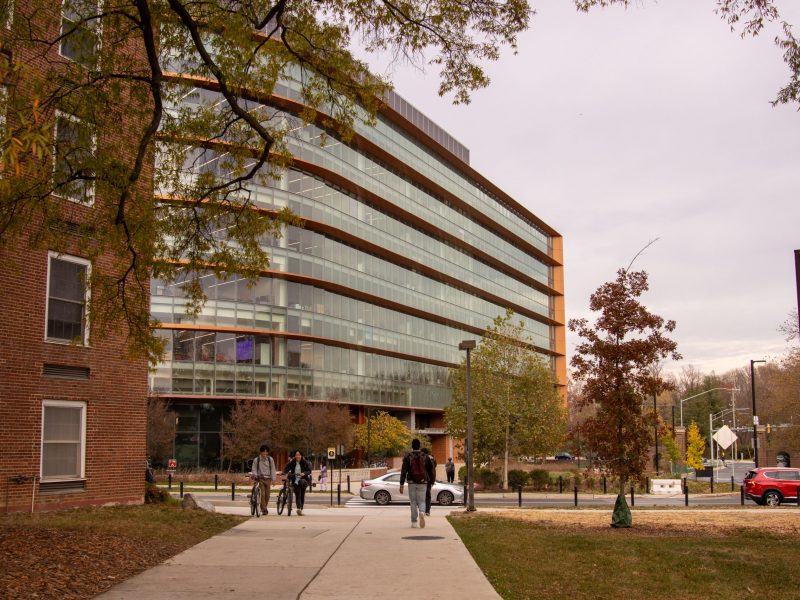Cheers and thunderous applause filled the room as Bernie Sanders stepped onto the stage at the University of Maryland’s Clarice Smith Performing Arts Center on Wednesday night. He waved, sunk down low in his chair and, once the cheering stopped, began to address one issue — voting.
“You’re going to have to make the difference,” he told the crowd of more than 200 students and community members. “Vote for people who speak for you, and then hold them accountable.”
The event, hosted by The New York Times’ “Get With the Times” speaker series, served as an opportunity for Sanders to urge students to “revitalize American democracy.”
[Read more: A UMD coalition has registered about 300 voters so far this school year]
After about 30 minutes of encouraging students to vote and be politically active, Sanders opened the event up to questions. Host Alexander Burns, a political correspondent for The New York Times, posed a few — but the rest were pre-submitted and chosen by Sanders’ team, according to “Get With the Times” spokesperson Megan Kaesshaefer, which concerned some students.
Senior atmospheric science and journalism major Greta Easthom said she felt inspired and empowered by the event, but was concerned about the lack of spontaneity from the questions.
“It didn’t give other news outlets or other students chances to ask off-the-cuff questions,” she said.
Video questions from five students were pre-submitted by national branches of Her Campus, an online magazine for college women and the campus co-sponsor of the event. Sanders himself was able to choose which video questions to answer ahead of time, Kaesshaefer said.
[Read more: Heading into October, some UMD students say they aren’t feeling engaged in governor’s race]
The in-person questions asked by university students were written by members of Terps Vote — a group encouraging voter registration — in conjunction with Her Campus. They were pre-submitted and evaluated by Sanders’ team as well, Kaesshaefer said, but Sanders “probably” did not see those questions in advance, she added.
Senior independent studies major Tino Fragale said he wished the questions had been “a little bit tougher.”
“I was interested in something a little less artificial,” he said. “I could have learned something different than the motivational speech that we had.”
One video question asked, “What historical figure, alive or dead, would you like to have dinner with?”
Sanders chose former President Franklin Roosevelt.
Throughout the evening, Sanders focused on political engagement and voter empowerment. He said the U.S. should enact automatic voter registration. If that’s not possible, he added, states should implement same-day registration at polling locations — a practice that’s not currently available in Maryland.
Overall, Sanders focused on the importance of young voters coming out to the polls in large numbers.
“The times are too dangerous for you to sit out,” he said.
Sanders touched on the ongoing investigation into Supreme Court nominee Brett Kavanaugh, whom three women have accused of sexual misconduct.
Sanders said he opposed Kavanaugh’s confirmation because he would sit on the “far-right court” and would give conservatives a clear 5-4 majority.
“It disgusts me beyond words that when Dr. Ford came forward with courage, that just the other day, we have a president who mocked her, made fun of her,” Sanders said. “We need to change this culture, and if women are assaulted, we want them to feel comfortable and tell their stories.”
However, Sanders stood by his support of Keith Ellison, the Democratic nominee for Minnesota Attorney General, who has been accused of physical and emotional abuse by his former girlfriend. Sanders said the claim has not yet been substantiated.
He also addressed Amazon’s recent announcement to raise its minimum wage to $15 an hour for U.S. employees. He commended Jeff Bezos, giving him credit for “doing the right thing.”
Terps Vote representative Alysa Conway, a sophomore government and politics major, said almost 50 people pledged to spread information about upcoming elections and voter registration.
“[Sanders] made me think about the issues that we need to communicate to our peers,” Easthom said. “It made us realize we cant silo ourselves off — we need to be voting on issues that affect us.”



